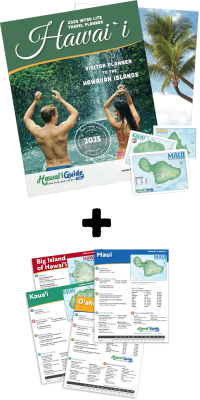06-09-2023
John C. DerrickNon Mineral Sunscreen Now Illegal on Maui
This article may contain affiliate links. We earn a small commission at no extra cost to you. Mahalo!
Sunscreen is a big deal in Hawaii - more significant than you might assume. It’s more than just a constantly in-demand product for protection against the island sun; sunscreen continues to be the subject of regulatory controversy in the land of Aloha.
That historical controversy began a new chapter on October 1, 2022, when a new law took effect on Maui. The law bans non-mineral sunscreens - any sunscreen containing active ingredients other than zinc oxide or titanium dioxide. Selling, distributing, and using sunscreens containing any other 14 possible active ingredients is now punishable by up to $1,000 in fines.
As with the ban on non-reef-safe sunscreens imposed roughly a year ago, the principal concerns are environmental. Sunscreen washing off millions of annual ocean-goers means lots of sunscreen (and chemicals) entering the ocean. According to officials, many of these chemicals are very unhealthy for marine life.
The first question most likely asked about such a ban is how it will be enforced. One can imagine almost comical scenes of officers patrolling the sands, rifling through purses, and collecting samples off visitors' shoulders. This, of course, is unlikely. A likely scenario from the visitors' perspective is that sunscreen brands and options will quickly become dramatically reduced in local stores.
In such a popular tourist destination with such a high demand for locally-available sunscreen, it's worth wondering whether availability itself will also be affected - particularly in the short term following the ban's recent introduction. Many of the largest sunscreen brands are effectively ruled out. Also, mineral sunscreens tend to be more visible on the skin, are often significantly more expensive, and need to be reapplied more often to be as effective - which points to the question of whether the ban could also discourage sunscreen use altogether among some visitors and locals, in a state where skin cancer rates increased by 14% from 2015 to 2019.
That all being said, mineral sunscreens that use zinc oxide or titanium dioxide are better for the planet and for your skin, causing far less irritation or allergic reactions. They also function in a fundamentally different way from non-mineral sunscreens. While non-mineral or chemical sunscreens absorb UV light to protect you from cancerous rays, mineral sunscreens physically block it - leading some doctors and other experts to even refer to them as “physical sunscreens.”
They are also far from being elusive. Numerous well-known brands make mineral sunscreens with different SPF. Mineral sunscreens can also come in regular and spray containers, like their non-mineral counterparts. A wide variety of options exist regarding the mineral sunscreen market - the only differences you’re liable to notice at first are the price tags and the white cast when you initially apply it.
So, what should you expect as a visitor to Maui traveling post-non-mineral-sunscreen ban? What should you do?
FREE 2025 DOWNLOADS
Hawaii Intro Visitor Guide
+ Our Summary Guidesheets!
Includes the top must-see & do attractions, best times to visit, a monthly weather & visitor summary, and our tips on how to save when booking your car rental, tours, and activities. Plus, grab our free Hawaii Summary Guidesheets. Check out our 2025 Hawaii Visitor Guides.
The first thing to know is that if you have a medical prescription, you are allowed to use the prescribed sunscreen even if it contains ingredients targeted by the ban. As for those not using prescription sunscreen, then be aware that right now and moving forward, any sunscreen that lists active ingredients that are neither “non-natonized zinc oxide” nor “titanium dioxide” is illegal anywhere on Maui. It is unlawful to sell it, illegal to buy it, and illegal to use it.
Chances are good that retail stores, which appear to be the main focus of law enforcement, will simply not be selling any such sunscreens by the time you arrive. Of course, we can’t make any guarantees there, but they risk paying daily $1,000 fines if caught, which seems like a pretty strong deterrent. Still, our recommendation is to check labels when you buy sunscreen if you aren’t in the habit already. This will not only help you make an informed decision about what you’re buying, but it will also help you start to zero in on who and who not to buy from in the future.
Aside from that, in a broader sense, remember that this whole thing is about protecting Hawaii’s rare and gorgeous natural environment. The clear, clean, wonderful underwater world is a significant part of what draws millions of annual visitors to this small island chain. Using mineral sunscreen is the best choice for your health and the health of the island at the same time.
Affiliate Disclosure: We may earn commissions from some travel partners (like Amazon or Expedia) which helps us maintain this site. These links are at no extra cost to you and don't impact our honest & unbiased recommendations. Remove all the ads →




